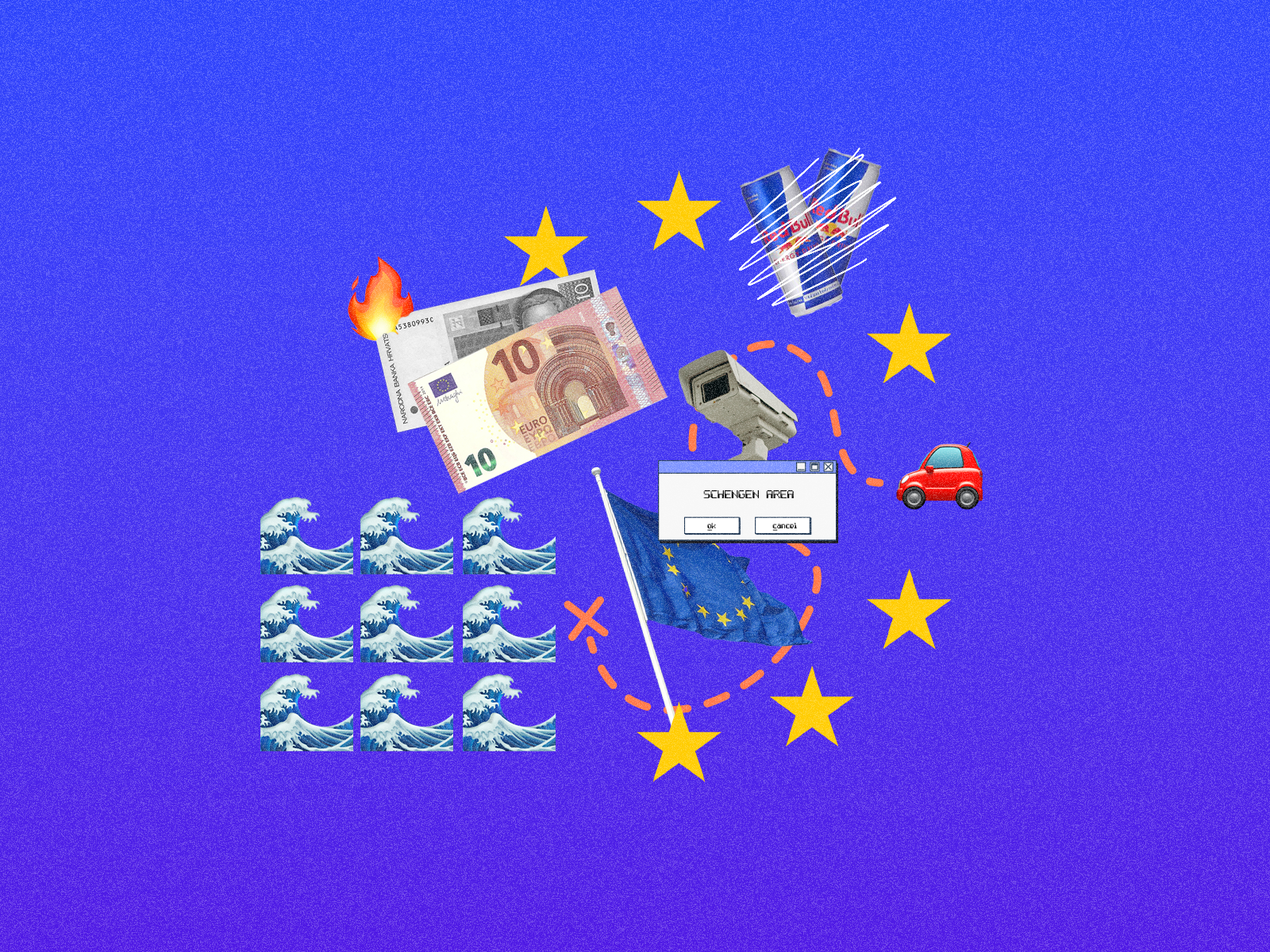1 January 2023 has not been just another New Year’s Day for Croatia: the Western Balkan country joined the Schengen Area, and the Croatian kuna has been replaced by the euro. But what do the forward-looking developments mean in practice?
The Schengen Area membership means significant freedom to the population as border control is abolished within the zone. Croatia is the twenty-seventh country to join the Schengen Area, comprising most European Union member states, Iceland, Liechtenstein, Norway, and Switzerland. The Schengen Agreement ensures unimpeded freedom of movement for approximately four hundred million people. Croatia’s membership means abolishing border controls on its border with Hungary and Slovenia, ending the days of long queues of cars. In aviation, controls are expected to be lifted in March.

Croatians have high expectations from the membership, which will potentially boost the country’s tourism, already accounting for a significant share (around 20%) of Croatia’s GDP. Croatian Prime Minister Andrej Plenković said the „membership means a lot for Croatia as a tourist country, which is to a large extent a destination where tourists travel by car.” Joining the eurozone is another historic step benefiting Croatian tourism, as most European tourists do not need to change money in the future. In addition, adopting the euro will boost the business life of Croatia and make the country’s economy more stable and resilient.
Croatia’s accession to Schengen was greeted by European Commission President Ursula von der Leyen in Zagreb, who also visited the Bregana-Obrežje border crossing point on the Croatian-Slovenian border. Croatia joined the Schengen Area after ten years of EU membership, and von der Leyen warmly welcomed the country. In her speech to the Croatian leaders, she said, "we are interdependent within the zone, but we know that we can trust you and count on you.” Plenković called 1 January 2023 a historic day, as Zagreb was the first to join the eurozone and Schengen Area on the same day. Croatia became the 15th country that is a member of NATO, the euro area, and Schengen.
Joining the eurozone is also extremely significant: As we covered earlier, Croatians can still use the phased-out kuna until mid-January, but then the euro will become their sole currency. This reduced to seven the number of EU countries that still did not join the euro area: Bulgaria, Czechia, Denmark, Hungary, Poland, Romania, and Sweden.

While the double move is a clear step toward EU integration, opportunities, and stability, there are also some concerns. For instance, the adoption of the euro did not happen at the best time as the single currency has significantly weakened against the US dollar. In addition, it can also increase the cost of living in the country. Still, Croatia’s PM believes that the euro means protection against crises, and many future developments are still to be seen.
Those who failed
Besides Croatia, Bulgaria and Romania also hoped to join the Schengen Area. The European Commission evaluated that Sofia and Bucharest met all accession criteria, but in the Justice and Home Affairs Council, Austria and the Netherlands voted against their application on 8 December. The Dutch actually opposed only Bulgaria’s membership, but the vote in the Council was about the two countries together. Vienna justified its decision with the migrant crisis, saying that Bulgaria’s and Romania’s membership would make the plight in Austria even more severe. Most refugees arrive in Austria via Turkey, Bulgaria, Romania, and Hungary, so the enlargement of the Schengen Area would intensify the emerging crisis. The decision was widely criticized, and not only by Romanians or Bulgarians, who felt the decision unjust. Judith Kohlenberger, an Austrian researcher and migration expert, said the veto was a bad decision signaling Austria’s turn away from Europe.

Romanians’ reaction was intense: the Romanian leadership and most of society were really enthusiastic about joining Schengen and got quite shocked as Austria’s boycott destroyed their plans. The country is now experiencing a strong anti-Austrian sentiment, manifesting in demonstrations and boycotting Austrian products. Protests took place in front of the Austrian embassy in Bucharest, photos were spreading in social media about a „Nazi bank” inscription on the entrance of a Raiffeisen Bank in Cluj-Napoca, and a grocery store has refused to sell Austrian energy drinks such as Red Bull because Vienna had also said no to their Schengen accession.
O sucursală Raiffeisen Bank a fost vandalizată de persoane necunoscute! „Nazi bank”, este mesajul lăsat la sucursala din Cluj-Napoca. Gestul apare în contextul în care România a ratat intrarea în Schengen, după refuzul Austriei și Olandei. https://t.co/7xgqXoPYkC
— 100News.Ro (@100newsR) December 9, 2022
Of course, the situation is not completely black and white: the Austrian leadership decided on the veto, not the people, and the reasoning based on the migration crisis is understandable. Bucharest has also reassured its commitment to take further steps for the country’s accession.
Graphics: Roland Molnár

Who said that white has to be boring?—A one-of-a-kind space bistro in the heart of Krakow | Lastriko











